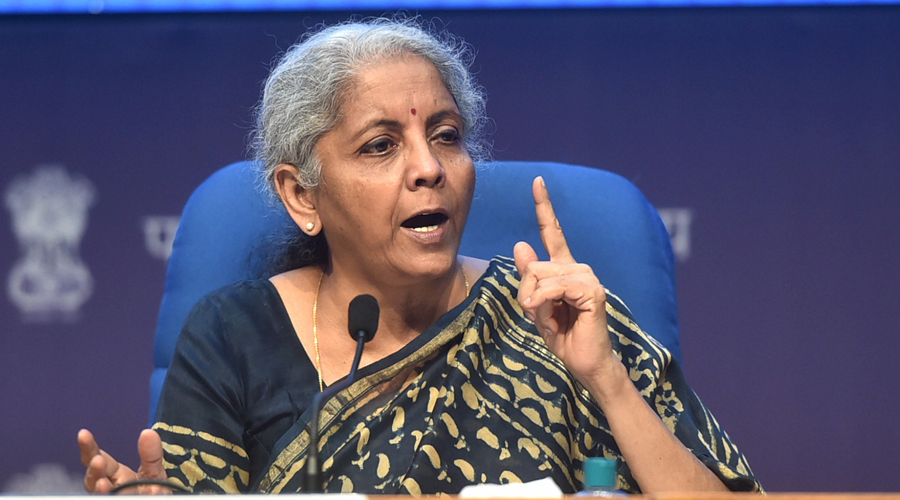Finance minister Nirmala Sitharaman on Thursday said the government would provide Rs 30,600 crore guarantee to the newly formed National Asset Reconstruction Company Limited (NARCL) or the bad bank.
The guarantee will be provided for the security receipts the bad bank will offer to the lenders.
The bad assets will be acquired by NARCL in phases — in the first phase it will acquire Rs 90,00 crore by paying 15 per cent in cash and 85 per cent through the issue of security receipts.
In all, NARCL will acquire Rs 2 lakh crore of bad loans.
Sitharaman said a debt resolution company would be formed to clean up the stressed assets. While PSU banks will hold a 49 per cent stake in the India Debt Resolution Company, they will hold 51 per cent in the bad bank.
Lenders will sell the toxic assets to the bad bank at a discount either in exchange for cash or a mix of cash and security receipts. The receipts are redeemable when the bad bank recovers a loan or on liquidation.
Sitharaman said the government guarantee will be invoked to cover the shortfall between the amount realised from the underlying assets and the face value of the security receipts, subject to an overall ceiling of Rs 30,600 crore, valid for five years.
Sitharaman said the bad bank will have to pay a fee for the guarantee. The fee for the guarantee would initially be 0.25 per cent, which would progressively increase to 0.5 per cent in case of delay in resolution of bad loans,
Anil Gupta, vice-president & sector head — financial sector ratings, Icra, said: “The upfront cash payment by NARCL to banks will immediately be accretive for the profitability and capital of the banks.”
“However, the ability of the NARCL to resolve these assets in a time-bound manner will be critical for future provision write-back by banks. We need to see how NARCL raises this cash of Rs 4,000-5,000 crore to be paid upfront to the banks,” Gupta said.
According to Anish Mashruwala, partner, J. Sagar Associates, the success of the bad bank, “will depend on the implementation and management of the transferred NPAs and it is likely that the government will keep a close eye on the management of the India Debt Resolution Company”.
RBI upbeat
The prospects are brightening for the Indian economy achieving “escape velocity” from the pandemic as the second wave of Covid-19 wanes and preparedness for future remains on war-alert status, according to an RBI bulletin published on Thursday.
The central bank said the inflation trajectory was shifting down more favourably than anticipated.
The softening of prices of various food items is likely to extend into the third quarter of this fiscal and contain the upside pressures stemming from fuel and core prices.
The task now is to consolidate these gains and carry them forward into the fourth quarter as well.
Retail inflation in August had come down to 5.3 per cent following subdued prices of food items such as vegetables.










